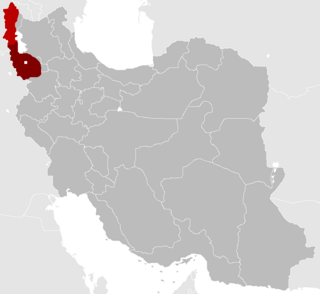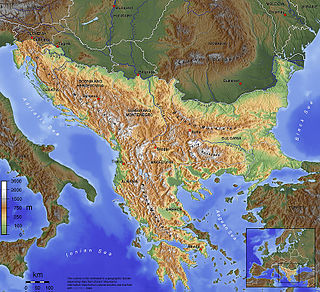
The United Nations General Assembly, UNGA; French: Assemblée générale des Nations unies, AGDNU is one of the six principal organs of the United Nations (UN), serving as its main deliberative, policymaking, and representative organ. Currently in its 79th session, its powers, composition, functions, and procedures are set out in Chapter IV of the United Nations Charter.
A United Nations General Assembly resolution is a decision or declaration voted on by all member states of the United Nations in the General Assembly.

A United Nations resolution is a formal text adopted by a United Nations (UN) body. Although any UN body can issue resolutions, in practice most resolutions are issued by the Security Council or the General Assembly, in the form of United Nations Security Council resolutions and United Nations General Assembly resolutions, respectively.

The United Nations Security Council veto power is the power of the five permanent members of the UN Security Council to veto any decision other than a "procedural" decision.

United Nations Security Council Resolution 3 was adopted on 4 April 1946. The Council acknowledged that Soviet troops occupying Iran were not removed in accordance with the Tri-partite Treaty of 29 January. Further proceedings surrounding the Iranian crisis were deferred until 6 May, when Soviet withdrawal was to be complete.

United Nations Security Council Resolution 5 was adopted on 8 May 1946. The Council deferred further proceedings surrounding the Iranian crisis until Iran submitted a complete report on the subject.

United Nations Security Council Resolution 7 was adopted on 26 June 1946. The Council resolved to maintain continuous observation of Francoist Spain and protect international security.

United Nations Security Council Resolution 10 was adopted unanimously on 4 November 1946. The Council determined that Francoist Spain no longer warranted continuous observation and turned over all related documents to the General Assembly.

United Nations Security Council Resolution 12 was adopted on 10 December 1946. The Council invited Greece and Yugoslavia to participate in discussions surrounding allegations of British troops interfering in Greece's internal affairs. Albania and Bulgaria were invited to present declarations before the Council.

United Nations Security Council Resolution 15 was adopted unanimously on 19 December 19 1946. The Council established a commission of investigation into the alleged border violations between Greece and Albania, Bulgaria, and Yugoslavia.

United Nations Security Council Resolution 17 was adopted on 10 February 1947. The Council declared that the commission established by Resolution 15 did not have the authority to request the governments of Greece, Albania, Bulgaria, or Yugoslavia to postpone any executions of political prisoners unless the commission believed they could provide testimony helpful to its work.

United Nations Security Council Resolution 34, titled "The Greek Question" and adopted on 15 September 1947, removed disputes between Greece and Albania, Yugoslavia and Bulgaria from the Council's agenda. It further requested the Secretary-General to place all records and documents in the case at the disposal of the General Assembly.

United Nations Security Council Resolution 44, adopted on 1 April 1948, having received the reports requested in United Nations Security Council Resolution 42, the Council requested the Secretary-General convoke a special session of the General Assembly to consider further the question of the future government of Palestine.
United Nations Security Council Resolution 275, adopted on December 22, 1969, after a letter from the representative of Guinea and observing that these incidents by Portugal jeopardize international peace and security, the Council called upon Portugal to desist from violating the sovereignty and territorial integrity of Guinea. The Council deeply deplored the loss of life and heavy damage to several Guinean villages inflicted by the action from Guinea-Bissau, a territory under Portuguese administration, solemnly warning Portugal that if such acts were to be repeated in the future the Council would consider further steps to give effect to the resolution. It also called upon Portugal to release a motor barge by the name of Patrice Lumumba and all of its passengers.

United Nations Security Council Resolution 282, adopted on July 23, 1970, concerned by violations of the arms embargo passed against South Africa in Resolution 181, the Council reiterated its total opposition to the policies of apartheid and reaffirmed its previous resolutions on the topic. The Council called upon states to strengthen the arms embargo by ceasing the provision of military training to members of the South African armed forces and by taking appropriate action to give effective to the resolution's measures.
United Nations Security Council Resolution 284, adopted on July 29, 1970, submitted the following question to the International Court of Justice for an advisory opinion: "What are the legal consequences for States of the continued presence of South Africa in Namibia notwithstanding Security Council resolution 276 (1970)?". The Council requested the Secretary-General transmit the resolution, along with all documents likely to shed light on the question to the Court.
The official languages of the United Nations are the six languages used in United Nations (UN) meetings and in which the UN writes all its official documents.

The Spanish question was the set of geopolitical and diplomatic circumstances that marked the relationship between Spain and the United Nations between 1945 and 1955, centred on the UN's refusal to admit Spain to the organization due to Francoist Spain's sympathy for the Axis powers, defeated in World War II.












